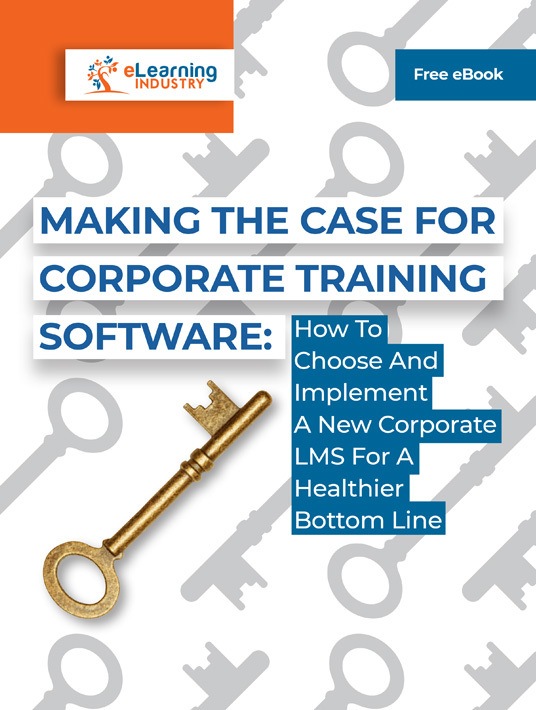How To Impart Practical Talents In Your HR Corporate Training Program
In sitcoms, the HR manager is often portrayed as a bureaucrat that seems bent on making life difficult. But in real-life the disconnect often comes from a simple lack of know-how or experience. It’s even harder when HR employees don’t seem clear on their tasks. And yet in many ways they play the most crucial role in a firm. They’re in charge of hiring, firing, salaries and work conditions in general. How can you use corporate LMS in your to help them do their jobs even better? Here are 6 tips to impart practical talents in your online HR corporate training program.

1. Demo Videos For Interviewing Skills
In today’s work-space, people get jobs in all sorts of ways. Usually, it’s through acquaintances and ‘weak connections’ in our social circles. Friend of a friend kind of thing. Or the candidates have already been pre-vetted through online portfolios, social media accounts and of course resumes. In this context, interviews are almost a formality. But HR staff still need to carry them out in a professional manner. And they don’t always know how to do that. Create demo videos of effective interviews, breaking down individual elements. Your corporate learners should model posture, body language, good question-asking, and building rapport. Demos based on journalists with proven interview skills are a good starting point. The context is different, but the skill-set is the same, getting someone comfortable and opening them up.
2. Positive Communication Tips
In many organizations you don’t talk to HR except during moments of crisis. Signing your contract on the first day, getting an appraisal, requesting a raise, asking for time off, getting an exit letter… HR seems like the office harbinger of doom. Teach them diplomacy and interpersonal soft skills. “It’s the ability to tell someone to go to hell in a way that makes them look forward to the trip.” Create simulations that allow them to practice giving bad news within the corporate training program. Offer them a wide variety of non-cliché language they can use in given situations. Vary it enough that they have positive vocabulary and framing rather than catchphrases that will soon become cringe-worthy and invoke aversion.
3. Simulations For Interpersonal Exchanges
Another dilemma for HR is merging the professional and the personal. You want them to be warm enough that staff are comfortable approaching them. But you also want to maintain some distance, because HR is a managerial role. Branching scenarios are a great way to teach this skill. By seeing how ‘people’ respond to their word choice, demeanor, and delivery, your corporate learners can find the right persona. And they can practice the same module as often as they like. Dig deep into these scenarios, programming multiple directions. This broadens the employees’ experience as they explore endless outcomes in the corporate training program. Empathy is a key skill to focus on, as they’ll need a large helping of it to address co-workers’ needs.
4. Roleplay Scenarios For Harassment Prevention
Harassment, sexual or otherwise, is one of the most upsetting things an employee could face. It’s also one of the most awkward forms of training. Online training allows HR corporate learners to ‘experience’ harassment from multiple perspectives. They can play a game as the oppressor, the victim or an observer. They can also practice role reversal. For example, an employee harassed by a colleague. This alternative point of view broadens the corporate learner’s thinking while giving ideas on how to train the rest of the staff. Once the HR team ‘gets it’ they can aid in their management.
5. Contextual Tutorials For Social Media Skills
A lot of us use social media for individual pursuits but it isn't clear on how to channel it for work. Offer this form of training to your HR team and watch them spread it to the rest. For one thing, it will help them expand their networks, which broadens your organization’s talent pool. And for another, it gives HR more confidence in their jobs. Lessons in a corporate training program should include personal branding, forming professional connections and headhunting via SM. You can also include modules on corporate social media management for your digital brand assets.
6. Group Collabs For Teambuilding
Develop group collab projects that allow HR employees to build interpersonal skills and facilitate team building in your corporate training program. This allows them to explore how their talents apply in a team setting and which roles they must fill. But you can also use the activity to help them see things from a different perspective. For instance, they must interact with the group members and share their experiences to achieve the goal. Everyone must contribute their skills to carry out the work process. They also have to communicate, respect others’ opinions and listen actively, which are all crucial talents for your HR department.
Some HR employees may lack the means to do their jobs well and that lack of empowerment can spill over. They might misunderstand company policy that leads to serious consequences for a co-worker. Or mishandle an issue that violates compliance and leads to costly fines. How can corporate LMS make life better for them, and by extension for everyone else? Use demo videos to help them conduct constructive interviews. Train them to communicate in an open, positive manner and improve their interpersonal skills. Teach anti-harassment through roleplay and explore social media as a professional networking tool. With these new skills at their fingertips, your HR team will be more effective. Which means your whole staff will be happier and more fulfilled.
Getting new hires into the flow of your work-place is an essential corporate undertaking. How can you be sure you get it right? Download our eBook Making The Case For Corporate Training Software: How To Choose And Implement A New Corporate LMS For A Healthier Bottom Line and discover all you need to know so you can choose and implement a new corporate LMS.








